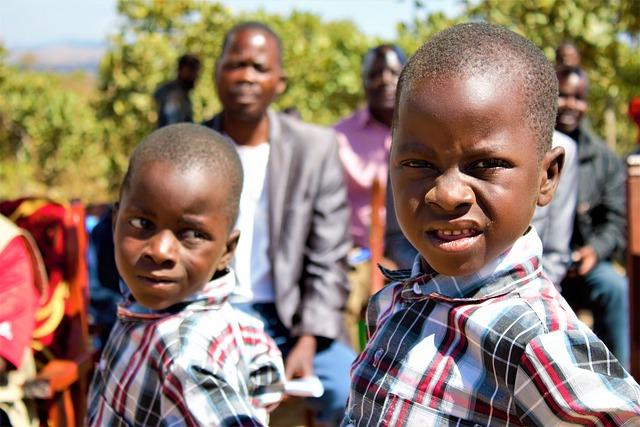In a significant collaborative effort aimed at enhancing healthcare outcomes, the government of Malawi has joined forces with Amref Health Africa Malawi to address critical challenges in maternal, newborn, and child health. This partnership, rooted in a shared vision for a healthier, more resilient population, seeks to implement innovative strategies and interventions that not onyl improve healthcare access but also strengthen the overall health system. As Malawi continues to navigate the complexities of providing quality health services in a resource-limited setting, this spotlight on their partnership highlights the strides made in promoting the well-being of mothers and children. Through concerted efforts, capacity building, and community engagement, this alliance is poised to make enduring contributions to the health landscape of Malawi, ultimately improving the lives of countless families and paving the way for a healthier future.
Partner Collaboration Enhancing Health Outcomes in Malawi

The partnership between the Government of Malawi and Amref Health Africa has significantly improved maternal, newborn, and child health outcomes across the nation. By leveraging their combined resources and expertise, these organizations have successfully implemented various initiatives aimed at enhancing healthcare access, education, and support for vulnerable populations. Key programs have included:
- Community Health Worker Training: Empowering local health workers with the skills needed to provide critical care.
- Awareness Campaigns: Mobilizing communities to raise awareness about maternal and child health services.
- Facility Upgrades: Improving healthcare facilities to ensure safe and effective service delivery.
To further track the progress of their collaboration, both partners utilize a data-driven approach that enables them to monitor health indicators and make informed decisions.Below is a summary of the impact of their joint efforts:
| Health Indicator | Before Partnership | Current Status |
|---|---|---|
| Maternal Mortality Rate | 574 per 100,000 live births | 439 per 100,000 live births |
| child Mortality Rate | 71 per 1,000 live births | 58 per 1,000 live births |
| percentage of Skilled Birth Attendance | 70% | 83% |
Strengthening Maternal Health Services Through Innovative Practices

In Malawi, innovative practices are being embraced to enhance maternal health services, addressing the critical needs of mothers and newborns across the nation. The partnership between the Government of malawi and Amref Health Africa Malawi exemplifies a forward-thinking approach that prioritizes sustainable healthcare solutions. By integrating technology and community engagement,this collaboration not only improves access to essential services but also empowers local healthcare workers through training and resources. Key initiatives include:
- Mobile Health Clinics: Bringing healthcare directly to remote communities.
- Telemedicine Services: Facilitating consultations with specialists in real-time.
- Community Health education: Raising awareness about maternal health and nutrition.
The success of these innovative practices can be measured through the improved health outcomes reported in various districts. The commitment to tracking progress through data-driven approaches enables a responsive healthcare system that can adapt and evolve based on real-time needs.A summary of the key metrics showcasing the impact of these initiatives is outlined in the table below:
| Metric | Before Partnership | After Partnership |
|---|---|---|
| Maternal Mortality Rate | 362 per 100,000 | 300 per 100,000 |
| Skilled Birth Attendance | 58% | 78% |
| Postnatal Care Coverage | 32% | 60% |
These figures highlight the transformative impact of the partnership, reinforcing the belief that through innovation and collaboration, the future of maternal health services can be significantly strengthened. The outcomes not only resonate at an institutional level but also touch the lives of families and communities, ensuring that every mother has the possibility to thrive.
Community Engagement as a Catalyst for newborn and Child Health

In Malawi, the collaboration between the government and Amref Health Africa is exemplifying the power of community engagement in enhancing newborn and child health outcomes. By mobilizing local leadership and resources, this partnership focuses on building trust within communities, fostering strong community health worker networks, and engaging families in health dialogues. These grassroots efforts include:
- Education initiatives: Raising awareness about maternal and child health issues through community workshops.
- Health screenings: Organizing regular health check-ups to detect and manage conditions early.
- Feedback mechanisms: Creating channels for community members to voice concerns and suggestions regarding health services.
This proactive engagement is not only empowering families to take action regarding their health but also strengthening the healthcare system as a whole. Moreover, the approach is supported by data illustrating significant improvements in health indicators:
| Indicator | Before partnership | After Partnership |
|---|---|---|
| Vaccination Coverage | 75% | 90% |
| Skilled Birth Attendance | 65% | 80% |
| Reduction in Under-5 Mortality | 89 per 1,000 | 72 per 1,000 |
Such results underscore the importance of community involvement in shaping sustainable solutions for health challenges, demonstrating that when communities and organizations unite, transformative changes can be achieved in the realm of maternal, newborn, and child health.
Evaluating Success: Insights from the Malawi Health Partnership

The partnership between the Government of Malawi and Amref Health Africa has yielded promising outcomes in the realm of maternal, newborn, and child health. Through collaborative efforts, they have effectively implemented programs that address the multifaceted challenges faced by these vulnerable groups. The key indicators of success include:
- Improved Access to Healthcare: Expansion of antenatal care services and skilled birth attendance.
- Enhanced Capacity: Training of healthcare workers in emergency obstetric care.
- Community Engagement: Mobilization of local communities to raise awareness about maternal health practices.
Moreover, regular evaluations of health outcomes highlight a significant reduction in maternal and infant mortality rates. By focusing on data-driven strategies, the partnership has been able to refine its interventions continually. The table below summarizes key health metrics from recent evaluations:
| Indicator | Baseline (2018) | current (2023) |
|---|---|---|
| Maternal Mortality Rate | 439 per 100,000 live births | 319 per 100,000 live births |
| Infant Mortality Rate | 70 per 1,000 live births | 55 per 1,000 live births |
| Skilled birth Attendance | 70% | 87% |
Future directions: Recommendations for sustaining Health Improvements

To build on the successes achieved in maternal, newborn, and child health, the collaboration between the Government of Malawi and Amref Health Africa must continue to evolve and strengthen. Recognizing the dynamic nature of healthcare needs, it is imperative to establish a robust framework that ensures long-term sustainability. Key recommendations include:
- Enhanced Training Programs: Expanding ongoing education for healthcare workers to stay abreast of the latest techniques and best practices.
- Community Engagement: Encouraging local involvement in health initiatives to foster ownership and accountability.
- Improved Supply Chain Management: Streamlining logistics to ensure that essential supplies reach healthcare facilities in a timely manner.
- Strengthened Data Systems: Implementing comprehensive data collection processes to monitor health outcomes and resource allocation effectively.
In addition to these recommendations, it is crucial to enhance public-private partnerships, as collaboration can increase resource availability and innovation. Developing policies that prioritize maternal and child health can lead to more effective funding allocations. A strategic approach could involve:
| Strategy | Description |
|---|---|
| Intersectoral Collaboration | Aligning health initiatives with education, nutrition, and economic programs. |
| Resource Mobilization | Engaging local businesses and international donors to secure funding. |
| Innovation in Service Delivery | Utilizing technology to enhance access to care in remote areas. |
empowering Local health Workers for Long-term Impact

In the heart of Malawi, an inspiring partnership between the Government of Malawi and Amref Health Africa is reshaping the landscape of maternal, newborn, and child health.By focusing on empowering local health workers, this initiative is ensuring that the most vulnerable populations receive the care they need. Through comprehensive training programs and ongoing support,health workers are well-equipped to provide essential health services,ultimately improving health outcomes across various communities. The dedication to nurturing local talent creates a sustainable model for healthcare, fostering resilience within the system.
This collaborative effort includes:
- Capacity Building: Tailored training sessions are conducted to enhance the skills and knowledge of healthcare providers.
- Community Engagement: Health workers are encouraged to engage with the communities they serve, enabling better understanding and response to local health needs.
- Monitoring and Evaluation: Regular assessments are performed to gauge the impact of the training on health outcomes, ensuring accountability and continuous enhancement.
These initiatives demonstrate a model of empowerment that prioritizes not only the health of mothers and children but also the professional growth of local health workers.As they gain confidence and expertise, these health workers become pivotal figures in their communities, driving long-term change and advocating for better health policies tailored to local needs.
Final Thoughts
the partnership between the Government of Malawi and Amref Health Africa represents a pivotal initiative in advancing maternal, newborn, and child health across the nation. This collaboration not only addresses the urgent health needs of vulnerable populations but also reflects a broader commitment to sustainable development and community empowerment. Through innovative strategies, capacity building, and a steadfast focus on health equity, the two entities are working diligently to reduce maternal and infant mortality rates, ultimately fostering a healthier future for the people of Malawi.As we continue to monitor the progress and impact of this partnership, it is evident that such collaborative efforts are essential in achieving comprehensive health reforms and improving the lives of Malawians. The ongoing commitment to this cause symbolizes hope and highlights the critical role that strategic partnerships play in tackling complex health challenges in the region.







